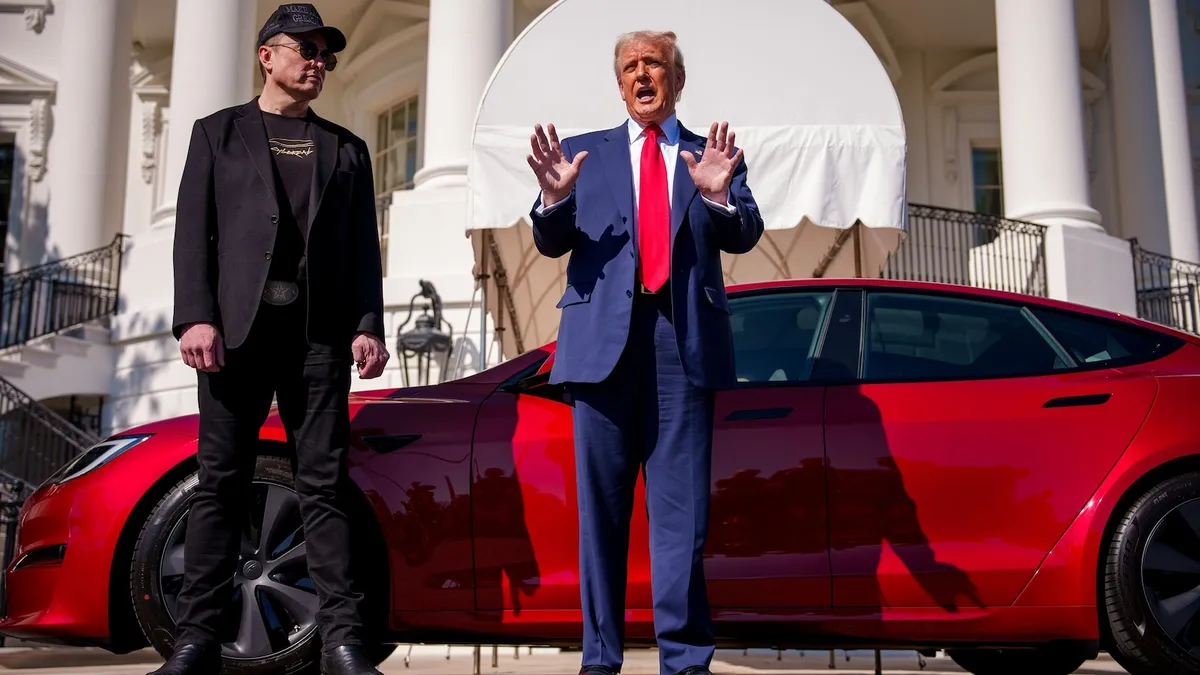
This week, electric automaker Tesla expressed its concerns regarding the ongoing tariffs imposed by President Donald Trump. In a letter addressed to the Trump administration, Tesla warned that the company could face exposure to retaliatory tariffs, urging the administration to consider the downstream impacts of these trade policies. The communication was an unsigned letter on Tesla letterhead directed to United States Trade Representative Jamison Greer.
The letter, dated March 11, surfaced after the USTR's office announced plans to conduct a review of unfair trade practices earlier this year. Notably, the letter reflects the views of Tesla, led by tech billionaire Elon Musk, who has been advocating for a reduction in government spending and downsizing the federal workforce. While it remains unclear whether Musk was personally involved in composing the letter, he has not publicly addressed the issue on his social media platform, X.
As highlighted by ABC News, some Tesla shareholders have voiced concerns over Musk's commitment to the company, particularly as Tesla's stock prices have seen significant declines since Musk's involvement with the Trump administration. In the letter, Tesla emphasized its position as a U.S. manufacturer and exporter, encouraging the USTR to take into account the downstream impacts of proposed actions aimed at addressing unfair trade practices.
Tesla's letter pointed out that the tariff actions implemented by the Trump administration have prompted immediate responses from the countries targeted by these tariffs, including increased tariffs on electric vehicles. The letter stated that past U.S. special tariff actions have led to two significant issues: first, they have increased manufacturing costs for Tesla vehicles produced in the United States, and second, they have raised costs for vehicles exported from the U.S. This situation has resulted in a less competitive international marketplace for U.S. manufacturers.
The letter urged the USTR to investigate strategies to avoid these pitfalls in future trade actions. Furthermore, it highlighted the need for the administration to consider supply chain issues when formulating future trade policies. Tesla specifically pointed to shortages of lithium-ion batteries, despite the company's initiatives to manufacture them domestically. The letter noted that even with aggressive localization efforts, certain parts and components remain difficult or impossible to source within the United States.
Tesla advocates for a thorough evaluation of domestic supply chain limitations by the USTR. This assessment is crucial to ensure that U.S. manufacturers do not face undue burdens from trade actions, which could lead to the imposition of cost-prohibitive tariffs on essential components or other import restrictions that are vital for supporting U.S. manufacturing jobs. The letter concluded by asserting that trade actions should not conflict with the goals of enhancing and supporting domestic manufacturing.
As the situation develops, Tesla representatives have yet to respond to inquiries from ABC News, including questions about the authorship of the letter. A spokesperson from the White House also did not provide immediate comments regarding the matter.
This situation underscores the complex interplay between trade policy and the advancement of domestic manufacturing, particularly in the fast-evolving electric vehicle market.